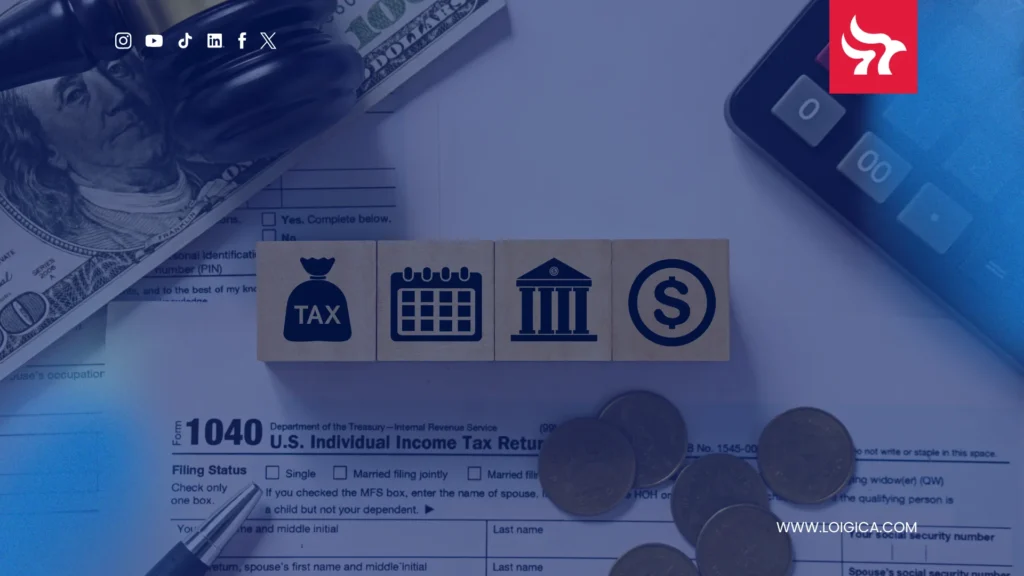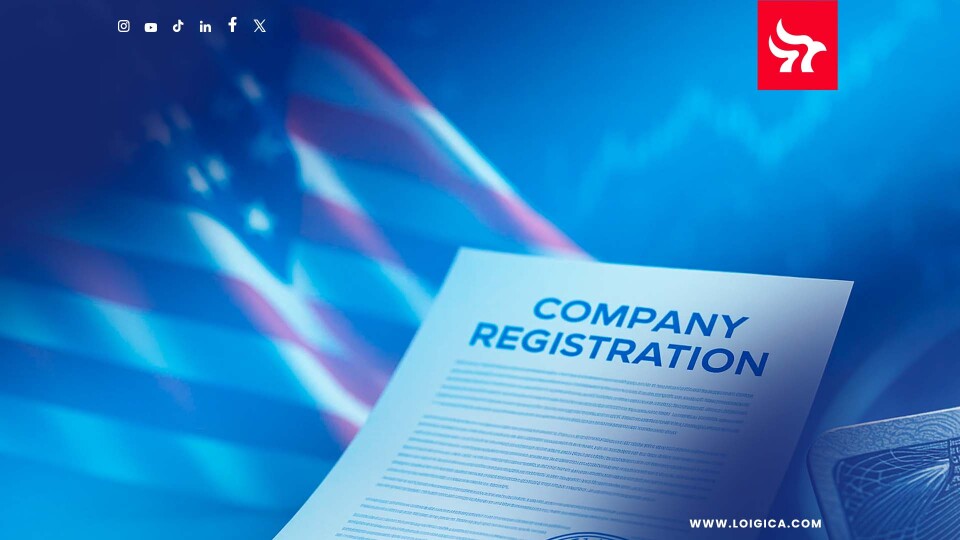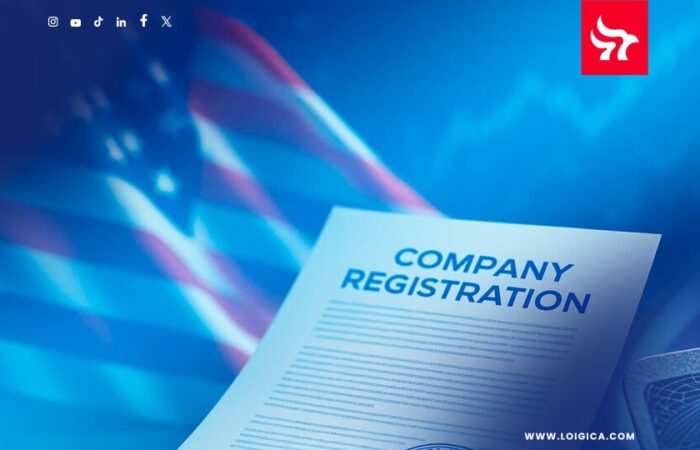Starting a business in the United States is one of the most strategic decisions a foreign entrepreneur can make. It is not only about expanding borders, but about gaining access to the world’s largest market and an unparalleled innovation ecosystem. To achieve this, it is necessary to understand that the legal and tax process is designed to safeguard the system, which is why each step requires clarity and rigor.
The first step is choosing the right legal structure. For foreign founders, the most common are the LLC and the C-Corp. The former offers flexibility and simplicity, in addition to a lighter tax framework; the latter is preferred by those seeking to raise capital from investors, as it facilitates the entry of partners and the issuance of shares. Within the U.S., states such as Delaware, Wyoming, and Nevada concentrate a large portion of company registrations due to their favorable framework, legal agility, and competitive costs. In fact, Delaware hosts more than 65% of Fortune 500 companies thanks to its legal certainty.
Once this decision is made, the founder must designate a registered agent with a physical address in the state of incorporation. This role serves as the official representative to receive legal notices and ensures that the company remains “in good standing” with local authorities. With the agent in place, incorporation documents are filed: Articles of Organization in the case of an LLC, or Articles of Incorporation for a corporation. Depending on the state, the costs for this filing range between $50 and $500.
After this step, a critical requirement follows: obtaining an Employer Identification Number (EIN) from the IRS. This number is essential to open a bank account and for tax purposes. Even without a Social Security Number, foreign founders can apply by submitting Form SS-4 and checking the box for nonresidents. With the EIN, the founder can open a bank account—although this stage often presents challenges. Many institutions require the applicant’s physical presence in the U.S., complicating the process for those starting remotely. However, digital banking has opened pathways through options like Mercury or Wise, which allow for account management remotely.
Regulatory compliance is another unavoidable step. In addition to annual state reports, some jurisdictions impose taxes such as the “franchise tax.” Depending on the industry, local, state, or federal licenses may also be required. While this regulatory framework may seem complex, it ensures security for both authorities and investors.
It is important to note that opening a company does not automatically grant the right to live or work in the U.S. For that, there are immigration alternatives such as the EB-5 visa, which requires a minimum investment of $800,000 in targeted employment areas and the creation of at least ten jobs, or the E-2 visa, available to citizens of treaty countries, which requires a substantial investment and majority control.
There is also the International Entrepreneur Rule, which grants temporary status to founders of high-growth startups. The appeal is clear: according to the Department of State and USCIS, the EB-5 program has enabled more than 100,000 green card approvals since 1990, and Forbes highlighted in a June 2025 report that, despite political volatility, the U.S. remains the number one destination for investment-based immigration—not because of institutional calm, but because of the strength of its legal system. Meanwhile, countries like Portugal have restricted their “golden visas” and Spain has debated eliminating them, a sharp contrast to the stability of the U.S. framework.
That said, founding a company as a foreigner also comes with practical challenges. Testimonials from entrepreneurs in forums like Y Combinator note that the annual costs of keeping a company active—accounting, ITIN, compliance, and banking transfers—can exceed $1,000 or even $3,000. Even so, the opportunity outweighs the hurdles: today, 36% of new companies in the U.S. are created by immigrants, and the Latino community is leading this growth at record speed, as reported by The Wall Street Journal in 2025.
Registering a business in the United States, then, is neither a privilege exclusive to citizens nor an impossible path for foreigners. It is a viable endeavor that requires preparation, knowledge, and legal guidance. The key lies in choosing the right structure, complying with regulations, and above all, understanding that this is not an improvised process: it is a strategic move for those who want to expand, innovate, and build a future in the most competitive market on the planet.
At LOIGICA, we have guided foreign founders through every one of these stages: from incorporation in strategic states like Delaware, to structuring visas that allow residence and work in the country. Our role is to be the legal bridge that eliminates invisible barriers between an idea and its consolidation in U.S. territory. We do this with legal precision, immigration expertise, and business vision. Because in this process, it is not enough to just register a company: it is about designing a comprehensive strategy so that registration is only the first step of a solid, scalable, and legally protected project.
_______________
📌 Links to information sources
- IRS – Business Structures
https://www.irs.gov/businesses/small-businesses-self-employed/business-structures - IRS – Apply for an Employer Identification Number (EIN)
https://www.irs.gov/businesses/small-businesses-self-employed/apply-for-an-employer-identification-number-ein-online - USCIS – EB-5 Immigrant Investor Program
https://www.uscis.gov/eb-5 - USCIS – International Entrepreneur Parole
https://www.uscis.gov/humanitarian/humanitarian-parole/international-entrepreneur-parole - U.S. Department of State – E-2 Treaty Countries
https://travel.state.gov/content/travel/en/us-visas/visa-information-resources/fees/treaty.html - USCIS – Immigration & Citizenship Data
https://www.uscis.gov/tools/reports-studies/immigration-and-citizenship-data
Ready to take your next step?
If you are ready to take the leap, schedule a consultation with our team. The future is not improvised—it is structured with legal vision.
📩 marketing@loigica.com | 🌐 www.loigica.com
This blog was written with asistance of generative AI. It is provided for informational purposes only. It does not constitute legal advice. The information presented here is based on general principles of U. S. immigration laws, as well as general information available for public search on public matters, as of the date of publication. Immigration laws and regulations are subject to change and individual circumstances may vary. If you need expert counceling on immigration matters, contact one of our attorneys.

ITIN vs SSN: When to Use Each Tax Identification Number in the U.S.

IRS Penalties for Foreign Owners: Fines, Forms, and How to Reduce the Risk



